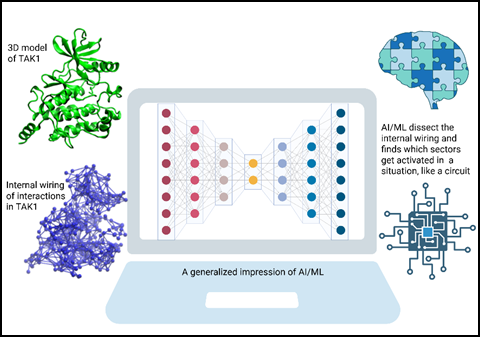In a breakthrough that bridges biochemistry and artificial intelligence, researchers at the Bose Institute have found that a protein crucial to immune response and cell survival may display rudimentary intelligence-like behaviour.
The team, led by Prof. Shubhra Ghosh Dastidar along with doctoral student Nibedita Ray Chaudhuri, studied TAK1 kinase — a protein known for its role in cellular stress signalling, inflammation and survival. Their work, published in the Journal of Chemical Information and Modeling, shows that the protein’s intricate internal wiring of atom-to-atom interactions enables it to process signals and respond in a context-dependent manner.
“Such highly organised assemblies of atoms, in certain cases, can develop pseudo-intelligence at a very basic level,” the researchers observed. This ability, they said, stems from the protein’s unique three-dimensional folding, which creates electrostatic interactions that function like internal circuits.
The study combines biochemical research with machine learning tools, marking an interdisciplinary approach that is part of a trilogy of research on TAK1 published between 2023 and 2025. The team’s findings extend the long-held biochemical principle of “sequence–structure–function” to include “sequence–structure–function–intelligence” for specific molecules.
TAK1’s ability to sense chemical modifications or even distant physical signals, and then trigger appropriate functional responses, makes it an important target for drug development. The discovery opens new avenues for therapeutic interventions while deepening understanding of molecular behaviour.










